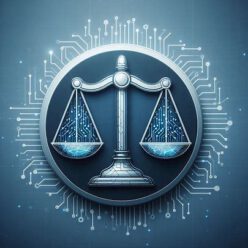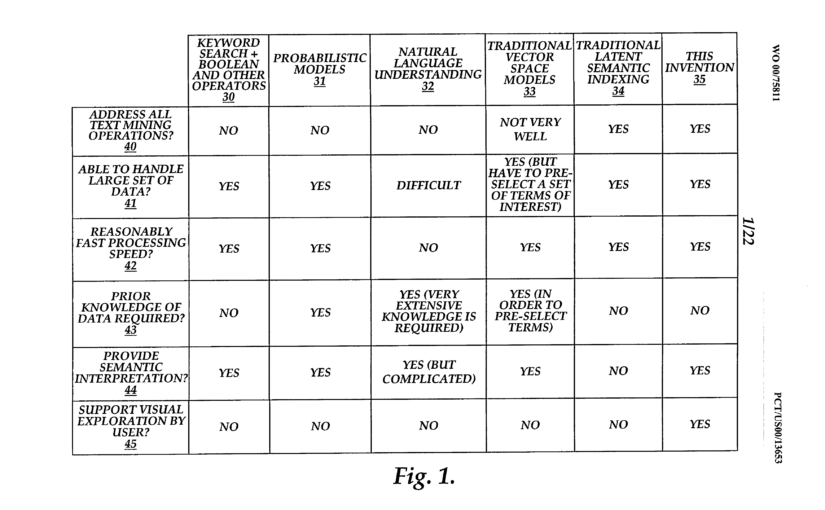In this decision the board considers the data does not form a physical entity.
Object of the Invention:
- the subject matter is directed to a method of representing a document collection
- the method is to a large extent defined in terms of equations
- the purpose of the method is to present the information in a way that can be more easily understood or evaluated by a user
Board I (field of technology):
- at the bottom of the method is a mathematical technique known as orthogonal decomposition
- this technique is generally applied to large matrices and, like many mathematical functions, can be represented graphically
- it is typical for mathematical representations that they involve pure numbers, ie abstract data, having no physical connotation
- in the present invention the representations are of documents and the terms used in the documents
- thus, although the data have a certain “meaning“, they remain abstract
- they can hardly be regarded as forming a physical entity, nor does the method result in a change in the data but merely in their representation (T 208/84)
- it could therefore be argued that the invention – apart from its implementation – is essentially a mathematical method pursuant to Article 52(2)(a) EPC, resulting in a presentation of information pursuant to Article 52(2)(d) EPC

